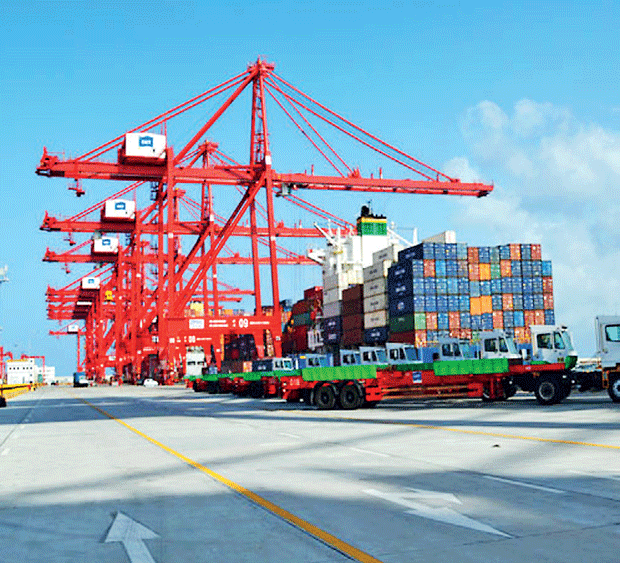22 Nov 2017 - {{hitsCtrl.values.hits}}

 I have been following up on the recent articles published in the newspapers and social media relating to the new budget proposal. The proposal for the liberalization of the shipping agency and freight forwarding industries seems to be one of the most debated budget proposals this time.
I have been following up on the recent articles published in the newspapers and social media relating to the new budget proposal. The proposal for the liberalization of the shipping agency and freight forwarding industries seems to be one of the most debated budget proposals this time.
Unfortunately, I feel the government has been completely misled by certain advisors to believe that the shipping industry in Sri Lanka only revolves around a handful of local agents that represents global container operators, completely overlooking the large segment of small and medium enterprises (SMEs) like us, who have supported the growth of this industry through ‘thick and thin’.
In fact, we, the SMEs, service twice the number of non-conventional vessels that call the ports of Colombo, Galle and Trincomalee and also serve hundreds of ships at off port limits (OPL).
It is totally incorrect to imply that only a few agents are running the shipping industry in Sri Lanka. There have been malicious attacks directed on a few leading companies, accusing them of monopolizing and controlling the shipping industry.
These couple of big players have been in this business for over decades. Their ‘survival’ does not by any means depend on the liberalization of the industry due to their diversity and international reach. Should there be a change in the policy, it is us, the SMEs, that will have to watch the foreign companies sweep us off our feet.
It is rather unfortunate that the government seems to be quite ignorant about the significant role that we, as SMEs, play. We have a huge bearing in making Sri Lanka a maritime hub in the region, which is the aspiration of the government as well.
It was our entrepreneurial initiative to develop the non-conventional business in the country. The attack on the big players will not only wipe out a few hundreds of SMEs, but also open doors for fly-by-night operators to benefit, which would result in the country losing the control over the entire maritime industry.
Another widely discussed topic is Maersk’s keen interest in expanding its footprint in Sri Lanka and its plans to move the back office operations to Colombo from India. Maersk is the only container shipping line operating in Sri Lanka with a controlling stake. The question is what prevented it from doing so all these years.
All related businesses, other than the shipping agency business, are open for 100 percent foreign investment. However, up to date, they have not shown interest in exploring any of these opportunities, which would have helped the country in reaching its goal of becoming a maritime hub in the region.
Terminal business is the only area they have shown a lot of interest in, of course under the current environment; even though they already had the capacity and the decision-making power to invest in any area other than the agency business. I feel we have been completely misled to believe the proposed liberalization is going to make any difference.
Even though Maersk’s intentions are questionable, if any other shipping and logistics company is genuinely interested in increasing its footprint in the country, we should all support it. However, we appeal to the government to ensure that these business proposals are accompanied with reasonable investments and proper regulations are implemented within the industry to control the cash outflows. Policy changes and decision-making should be done whilst always being mindful to safeguard our national interest.
25 Nov 2024 1 hours ago
25 Nov 2024 1 hours ago
25 Nov 2024 3 hours ago
25 Nov 2024 4 hours ago
25 Nov 2024 4 hours ago